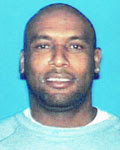David Francis Giles :Hells Angels chapter was expanding operations in Kelowna

A judge determining the fate of a senior member of Vancouver's East End Hells Angels and two alleged associates accused of cocaine possession and trafficking asked some blunt questions today of the federal prosecutor.
"Where's the direct evidence of money going to the Hells Angels?" asked B.C. Supreme Court Justice Anne MacKenzie.
"You need not prove a financial benefit," explained prosecutor Martha Devlin, during her third day of final arguments at the trial, which began last year.
"The benefit to the club is the reputation of the club and the status of the End End chapter of the Hells Angels."
She said the Hells Angels chapter was expanding operations in Kelowna in 2005 to take advantage of the lucrative cocaine trafficking market in the Okanagan city.
"They are planting their flag," Devlin said of the Hells Angels expansion, which included establishing a clubhouse in Kelowna and a number of members of the East End chapter moving there.
David Francis Giles, 58, a Hells Angels member for more than 20 years, is accused of possessing cocaine for the purpose of trafficking "for the benefit of, at the direction of, or in association with a criminal organization, to wit: the East End chapter of the Hells Angels."
Also on trial are alleged Hells Angels associates David Roger Revell, 43, and Richard Andrew Rempel, 24, who are accused of cocaine trafficking and possessing cocaine for the purpose of trafficking in association with a criminal organization -- the Hells Angels.
The trial has heard how police offered $1 million to a former Vancouver strip club bouncer, Michael Plante, who infiltrated the East End chapter of the Hells Angels and worked as a police agent.
Plante was paid $500,000 and will get the rest after he testifies at a number of pending trials. He is living under a new identity, but didn't enter the witness protection program.
During the $10-million investigation, police also wiretapped phones and placed listening devices in the Hells Angels clubhouse and inside Giles' Kelowna home.
The police probe resulted in the arrest of 18 men, including five full members of the Hells Angels, the son of the East End chapter president, and a dozen alleged associates.
The trial has heard how police seized three kilograms of cocaine from a Kelowna storage locker in April 2005, which prompted a flurry of e-mail activity between the BlackBerry phones later seized from Revell and Rempel.
The next day, police seized a green Chrysler Intrepid that the Crown contends had been observed during police surveillance picking up cocaine at the storage locker.
The car, which had been on Rempel's used car lot before it was ditched on a lot outside of Kelowna, was found to contain five kilograms of cocaine hidden in a secret compartment.
Police also found a Hells Angels Nomads "support wear" black hoodie at Rempel's residence, which Devlin contends indicated Rempel was aware of who he was dealing with -- Giles and other members of the Hells Angels motorcycle club.
"Mr. Rempel is involved in criminal activity," Devlin told the judge. "Our position is that Revell and Rempel know they are involved with Mr. Giles and the club... They are doing it at the behest of Giles."
She alleged Hells Angels members operate in small "cells" to avoid police detection.
"It's all done in association of the club with the power of the patch behind them," the prosecutor explained.
The patch refers to the winged death's head patch that full members of the Hells Angels wear on the backs of jackets.
Police allege the Hells Angels East End chapter is one of the most powerful and wealthiest gangs in B.C.
Devlin recalled the trial heard one Hells Angels member telling an aspiring Hells Angel member:
"If you get taken down, we all get taken down -- the club gets taken down."
She added: "They conduct their business to ensure the sanctity of the club."
The Crown contends that Giles paid for Revell and Rempel to fly to Calgary and, that when Giles' girlfriend mentioned the $500 airfares went on her credit card, Giles was heard saying on a wiretap call that he had earned $30,000 from Revell.
In the midst of the cocaine seizures, the prosecutor pointed out, Revell met with Giles. And after Revell was arrested in April 2005, Devlin said, he went to Giles home in May 2005, where a listening device captured their candid discussion about the eight kilograms of cocaine that had been seized, with Giles offering: "We'll get back up."
Devlin added: "Mr. Giles is alive to the fact that it's not a drug ripoff by a rival... and it's not going to stop them -- they are going to get back up."
The trial is expected to continue Monday at the Vancouver Law Courts with the three defence lawyers beginning their final arguments.

Comments
Post a Comment